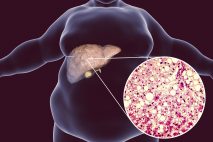European Commission approves nintedanib in adults for the treatment of other chronic fibrosing interstitial lung diseases (ILDs) with a progressive phenotype beyond idiopathic pulmonary fibrosis.- Boehringer
Boehringer Ingelheim announced that the European Commission (EC) has approved an additional indication for nintedanib in adults for the treatment of other chronic fibrosing interstitial lung diseases (ILDs) with a progressive phenotype beyond idiopathic pulmonary fibrosis (IPF). The approval comes after the Committee for Medicinal Products for Human Use (CHMP) adopted a positive opinion in May 2020. The Health Canada and the Japanese Pharmaceuticals and Medical Devices Agency (PMDA) recently approved nintedanib as the first treatment for the same patient population.
Interstitial lung diseases encompass a large group of more than 200 disorders that may involve the threat of pulmonary fibrosis – an irreversible scarring of lung tissue that negatively impacts lung function. People living with fibrosing ILD can develop a progressive phenotype, leading to lung function decline, deterioration in quality of life and early mortality similar to those with IPF, the most frequent form of idiopathic interstitial pneumonias. The course of the disease and the symptoms are similar in progressive forms of chronic fibrosing ILDs regardless of the underlying ILD diagnosis, and as many as 18% to 32% of patients with non-IPF ILDs are estimated to be at risk for developing a progressive fibrosing disease behavior.
The approval is based on the results of INBUILD, which was a randomized, double-blind, placebo-controlled, parallel-group phase III trial, which evaluated the efficacy, safety, and tolerability of nintedanib in patients with chronic fibrosing ILDs with a progressive phenotype. The primary endpoint was the annual rate of decline in forced vital capacity (FVC) in mL assessed over a 52-week period. Patients on placebo lost 188mL lung volume over a year, while patients on nintedanib lost 81mL. This was measured as adjusted annual rate of decline over 52 weeks and meant that nintedanib slowed the lung function decline by 57% versus placebo. The treatment effect of nintedanib in slowing FVC decline compared with placebo seen in INBUILD was consistent for all patients, regardless of the fibrotic pattern on high-resolution computed tomography (HRCT) and it was also consistent with the results in nintedanib trials studying patients with IPF and SSc-ILD.




